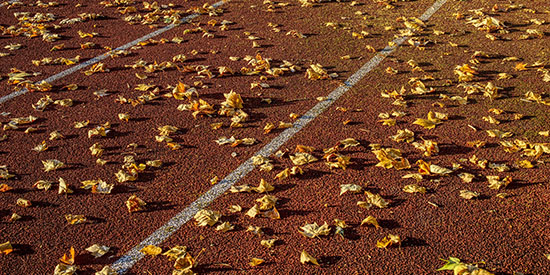Study sheds light on mental health of Paralympic athletes
Media release
New research has revealed more similarities than differences in mental health problems of elite athletes from Paralympic sports compared to their non-Paralympic counterparts.
New research has revealed more similarities than differences in mental health problems of elite athletes from Paralympic sports compared to their non-Paralympic counterparts.
The study led by Deakin University Senior Research Fellow and clinical psychologist Dr Lisa Olive, in collaboration with Orygen and the Australian Institute of Sport (AIS), drew on data from the AIS Mental Health Audit to examine the rate of mental health symptoms among 749 currently competing elite athletes and whether there were differences between those in Paralympic and non-Paralympic sports.
The results showed a similar number of Para-athletes and non-Para athletes (37% and 35 % respectively) indicated they had mental health symptoms at a level that would usually warrant a need for professional healthcare. A finding that was at odds with the general (non-athletic) population where rates are often reported to be higher for people with disabilities.
Para-athletes were also found to have lower rates of risky alcohol consumption and lower self-esteem compared to athletes from non-Paralympic sports.
Dr Olive said this is one of the first major studies into Para-athlete mental health and points to the need for more research to ensure support was aligned with the needs and circumstances of these athletes.
"While overall mental health and wellbeing symptom profiles are largely similar, further research into the areas of difference will help to better address the unmet and distinct mental health needs of athletes from Paralympic-sports," she said.
"For example, Para-athletes, who unlike non-Para athletes may also experience a range of additional impairment-specific stressors that have the potential to compromise their mental health. This might include things like discrimination and a lack of sufficient, adaptive sport facilities."
A number of favourable personal and sport-related differences among Para-athletes, as compared to non-Para athletes, could explain the little differences seen between the mental health of the two athlete groups, Dr Olive said.
"On average, athletes from Para-sports were older (often associated with lower rates of mental health problems); had longer contracts with their sport (representing career longevity/stability); travelled less (minimising their time away from home and their usual social support systems); and were more likely to have received treatment for a mental health problem (which may be reflective of help-seeking behaviour)," she said.
"It may be that the Paralympic Movement and the status of the Paralympics has potentially helped Para-athletes to develop a range of protective factors related to their involvement in elite sport and their identity as an elite athlete. Things like increased social integration, the development of positive social-support networks, and autonomy and independence gained through sport are all factors that can positively influence mental health.
"Also, the proportion of athletes from Paralympic sports in paid employment in the current study (59.2%) is higher than that reported in individuals with an impairment in the general population (48%)."
Dr Olive said that the results of the study point to a need for routine screening of athletes for mental health problems to allow early detection and to prevent issues from getting worse.
"There is a real need for professionals working in elite sport organisations to support the mental health of their athletes and ideally, for these organisations to have best-practice mental health systems in place prior to a mental health crisis occurring." she said.
"This includes understanding that a considerable number of athletes will experience mental health problems, and being able to provide an appropriate response, which in some cases will involve clinical care."
Dr Olive said that while this study provided new knowledge that can inform appropriate mental health response frameworks and interventions, more work was needed to ensure athletes are properly supported.
"The AIS has developed a national system to support mental health and enhance wellbeing across high performance sport that is informed by research, including the current study. This system includes the AIS Mental Health Referral Network and a national network of more than 30 Athlete Wellbeing and Engagement managers embedded in national sporting organisations.
"However, further investigations are needed to fully understand the rates and types of mental health problems our athletes are facing and how best to support them, and this is particularly the case when it comes to Para-athletes."
The study Do Rates of Mental Health Symptoms in Currently Competing Elite Athletes in Paralympic Sports Differ from Non-Para- Athletes? is published in journal Sports Medicine.
Share this story

